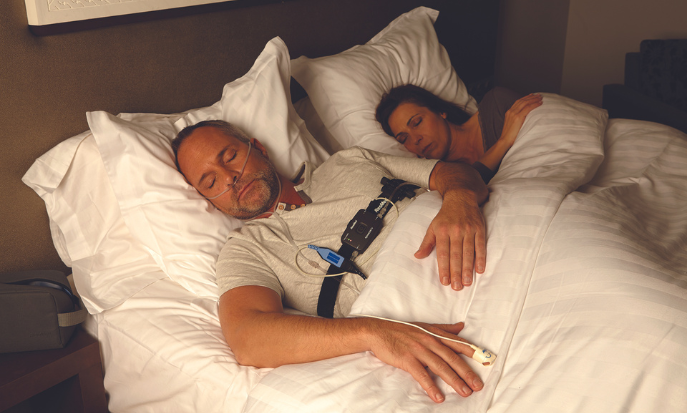
What is Level 3 Sleep Study ?
A Level 3 sleep study, often referred to as polysomnography (PSG) or a home sleep apnea test, is a diagnostic procedure used to evaluate sleep disorders. The "Level 3" classification typically indicates a moderate level of monitoring compared to more comprehensive studies.
Here’s a breakdown of what you might expect:
Purpose: The study helps diagnose conditions like obstructive sleep apnea (OSA), central sleep apnea, or other sleep-related issues by monitoring various physiological parameters during sleep.
Monitoring: In a Level 3 sleep study, several key physiological signals are recorded:
Electroencephalography (EEG): Measures brain wave activity to determine sleep stages.
Electrooculography (EOG): Monitors eye movements to track REM sleep.
Electromyography (EMG): Records muscle activity, typically from the chin or legs, to detect movements or muscle tone.
Electrocardiography (ECG): Records heart rate and rhythm.
Respiratory parameters: Includes airflow, effort (from chest and abdomen movements), and oxygen levels to assess breathing patterns and detect apneas or hypopneas.
Setup:
In-Lab PSG: This is done in a sleep clinic or lab where the patient is monitored overnight. Sensors are attached to various parts of the body to collect data. The environment is controlled to optimize sleep conditions.
Home Sleep Apnea Test (HSAT): This is a more simplified version typically conducted at home. It usually involves fewer sensors but focuses primarily on monitoring airflow, breathing effort, and blood oxygen levels.
Procedure:
For in-lab studies, you'll arrive at the sleep center in the evening, and the technologist will place sensors and electrodes on your body. You’ll then sleep in a controlled environment while the equipment records your sleep patterns.
For home tests, you’ll receive a portable device to wear during sleep. This setup is usually less comprehensive but can still provide valuable information about your sleep and breathing patterns.
Diagnosis and Follow-up: After the study, the collected data is analyzed by a sleep specialist. They will look for abnormalities such as obstructive sleep apnea, central sleep apnea, or other sleep disorders. Based on the results, they’ll recommend appropriate treatment or further testing if needed.
Level 3 sleep studies are designed to provide a thorough assessment of sleep-related issues while balancing the need for comprehensive data with patient comfort and convenience.

